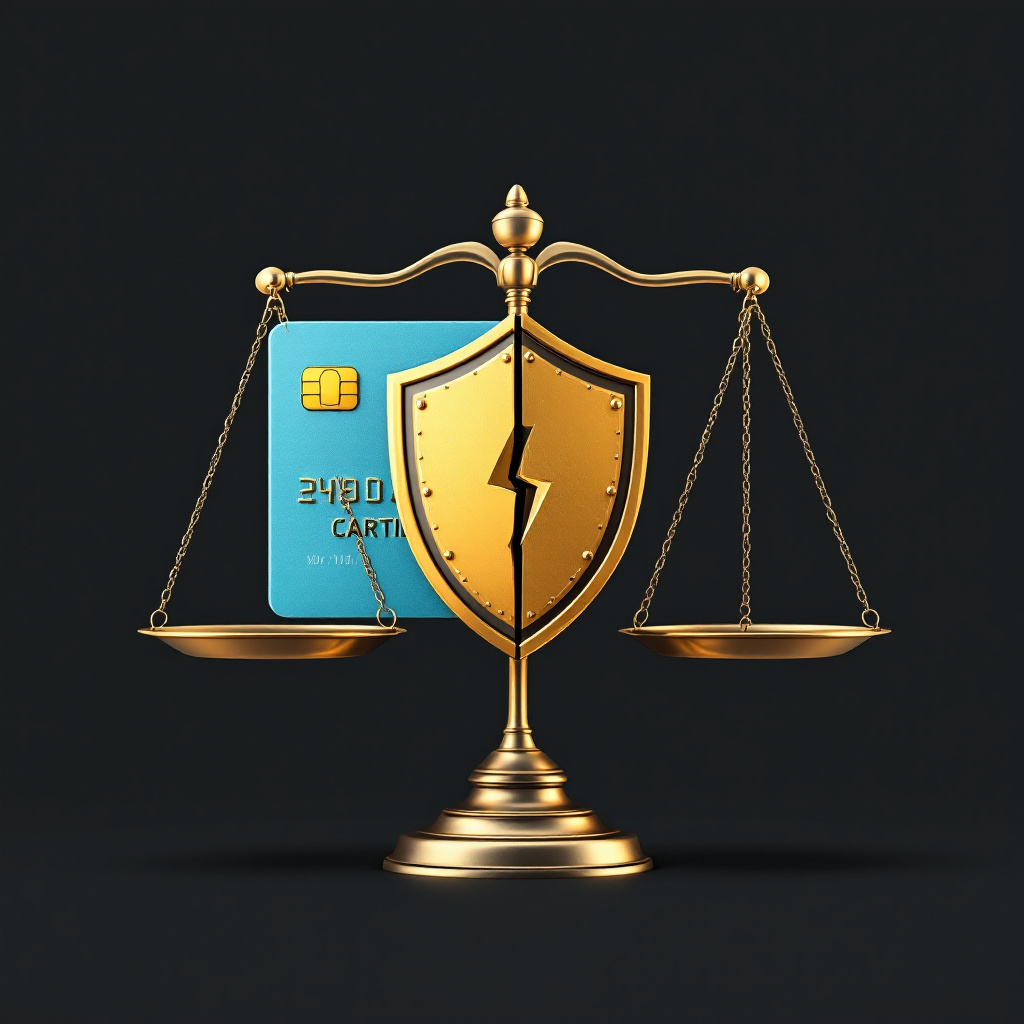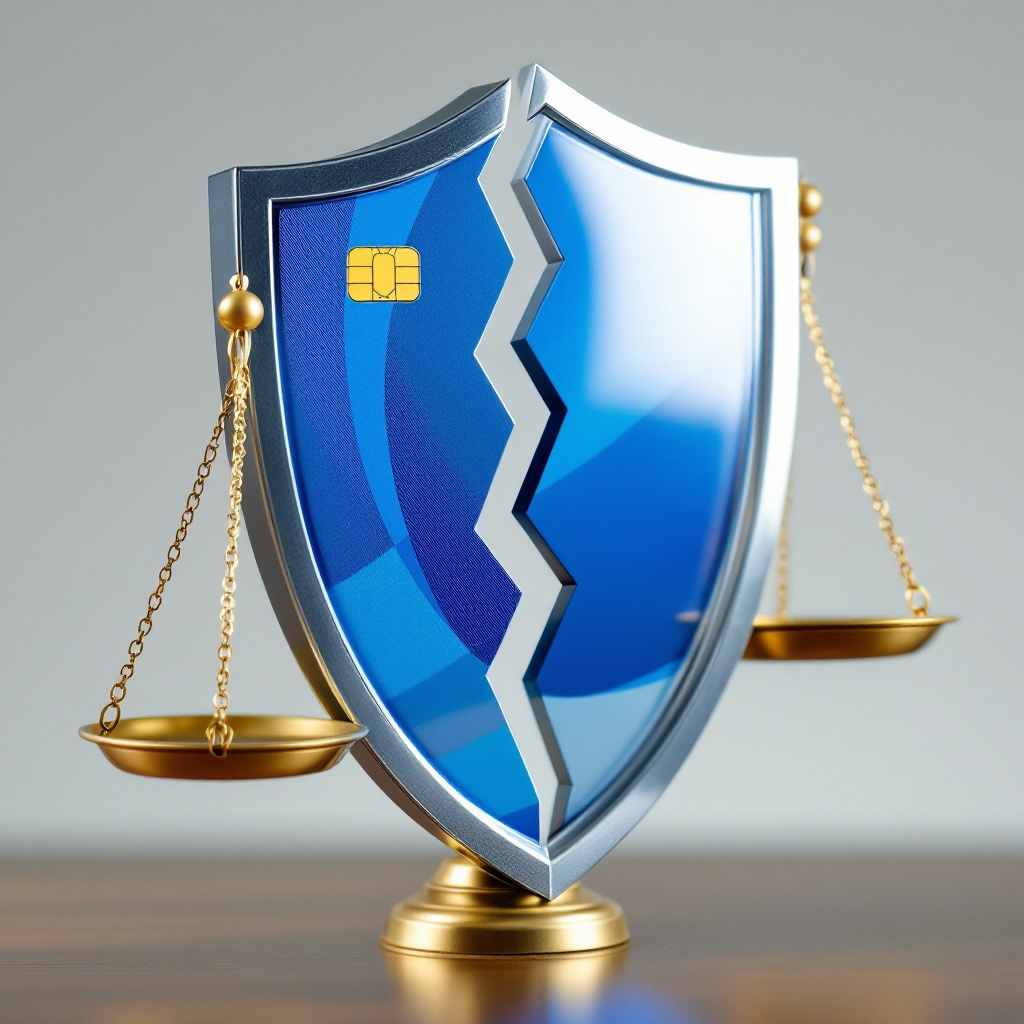Protecting Personal Credit During Divorce Proceedings: Strategies for a Secure Financial Future
Ah, divorce — it’s a bit like an uninvited dinner guest who refuses to leave. It disrupts everything, shakes the table, and turns your world upside down. When you’re navigating the choppy waters of a marriage dissolution, keeping your personal credit intact might not be the first thing that comes to mind. However, it’s a critical lifeline that demands your attention. Consider this your compass in the storm: a strategic guide to safeguarding your credit during divorce proceedings.
Understanding the Credit Maze: Why It’s Crucial During Divorce
Personal credit determines not just your eligibility for loans and credit cards but also impacts your general economic stability. During divorce proceedings, credit has an uncanny ability to slip through the cracks, often taking a tumble into a downward spiral. Hence, understanding its significance during such turmoil is key.
When marriages end, financial responsibilities can become a tangled web of shared debts and obligations. Any joint accounts or loans are technically the responsibility of both parties, despite the outcome. This scenario creates a fertile ground for missed payments and neglected debts, ultimately harming your credit score. It’s like a slip on a banana peel — sudden and unfortunate.

The Pre-Divorce Credit Checklist: Preparation is Power
As they say, an ounce of prevention is worth a pound of cure. It’s incredibly true when protecting your personal credit during divorce proceedings. Let’s dive headfirst into some pre-emptive measures that can shield your credit status.
- Pull Your Credit Report: Knowledge is power. By obtaining your credit report, you can thoroughly understand your financial standing and identify potential red flags.
- Identify Joint Accounts: Create a list of shared accounts. These accounts pose the greatest risk and require immediate attention to avoid potential credit damage.
- Monitor regularly: Make it a habit to review your credit score frequently. It acts like a financial health check, keeping you updated on any unusual activity.
Severing Ties: The Art of Separating Joint Accounts
Joint accounts, my friend, can be more trouble than they’re worth during a divorce. It’s vital to untangle these financial knots at the earliest to prevent credit chaos. Here’s how you do it:
- Close Joint Credit Cards: Aim to settle any pending dues on joint credit cards and agree to close them. This prevents any future charges you might not be privy to.
- Refinance Joint Loans: For significant loans, consider refinancing in one spouse’s name. This transfers the debt to one individual, freeing the other from responsibility.
- Open Individual Accounts: Start establishing your own credit accounts. History and diverse sources of credit can impact your score positively over time.
Communication and Documentation: The Silent Protectors
In the chaos of divorce, communication can be your most effective tool. It ensures both parties are on the same financial page. Document everything related to financial agreements, as clear communication and documentation are pillars that uphold credit protection.
Mutual Agreements on Debts: Have a frank dialogue about existing debts and agree on who pays what. A written agreement can help you make this a binding decision, providing no room for misinterpretation.
Legal Documentation: Your attorney can draft paperwork to ensure that all financial commitments are legally recognized and enforceable. It’s your way of ensuring verbal promises turn into structured responsibilities.
Post-Divorce: Building a Resilient Credit History
As the dust settles, your credit strategy should pivot from protection to rebuilding. Nonetheless, remember that good change doesn’t happen overnight — patience, consistency, and discipline are instrumental.
- Build Credit Independently: Start with a secured credit card or a small loan, ensuring timely payments to build your credit score steadily.
- Regular Monitoring: Continue the habit of regularly checking your credit report. Knowledge about your credit status and any anomalies is critical for long-term management.
- Diversify Your Credit Mix: Consider various credit types responsibly. This could include revolving credit, installment loans, etc., which help foster a robust credit profile.
Seeking Professional Help: Don’t Go It Alone
Without a doubt, navigating the financial labyrinth of divorce is no small feat; a little help from experts can make a world of difference. Financial advisors, credit counselors, and family attorneys can provide tailored guidance that aligns with your unique situation.
These professionals can help:
- Review Financial Status: Offer expert insights into your financial condition and recommend suitable strategies.
- Credit Score Optimization: Provide tips on enhancing and maintaining a strong credit score post-divorce.
- Debt Management Plans: Assist in developing structured plans to tackle outstanding obligations strategically.
In Conclusion: Your Path Forward
Divorce, while complex and fraught with emotional upheaval, also opens doors to a fresh start. Ensuring your credit remains shielded comprehensively during this time serves as the foundation of financial independence. It’s the solid ground supporting your leap into a promising future.
By taking systematic steps to protect your personal credit during divorce proceedings, you’re investing in your financial well-being for years to come. Relinquish the fear of the unknown, embrace your new beginning, and remember you hold the reins of your credit destiny.
Sure, divorce may have tossed a wrench into your plans, but robust, well-nurtured credit can be your tool to carve out a new life chapter that’s equally, if not more, rewarding.
FAQs
How do I protect my credit during a divorce?
Consider freezing your credit. It’s free and straightforward to do by contacting each of the three credit bureaus. While you can freeze your credit for a set period of time, it’s often wise to keep it frozen and only open it when you’re applying for new credit, promptly closing it again afterward. This helps prevent any unauthorized access in the midst of legal proceedings.
Who suffers most in divorce financially?
Generally, women tend to suffer more financially than men do from divorce. This outcome is often due to factors like wage disparities and custody arrangements that may favor one partner over the other. It emphasizes the importance of both partners being actively involved in finances during marriage to ensure stability post-divorce.
Am I responsible for my spouse’s credit card debt in divorce?
In most states, you are responsible for all credit card debt incurred in your name during a divorce. You will not be responsible for your spouse’s credit card debt if it is in their name only. However, in community property states, if the card was opened during the marriage, you might be responsible for 50% of the debt. It’s advisable to get clarity on these responsibilities to avoid unexpected liabilities.
Can divorce affect my credit score?
Divorce itself does not directly impact your credit score; however, the financial changes that come with it can. If joint accounts are mishandled, or if agreements to pay off shared debts are not honored, late or missed payments can negatively affect your credit. Being proactive about communication and resolution is key to maintaining a healthy credit score.
Should I inform creditors about my divorce?
Yes, it’s a good idea to inform your creditors about your divorce. It helps to outline any changes in your financial situation that might affect your ability to make payments. They may offer advice or solutions like altering payment plans to accommodate your new circumstances. Keeping an open line of communication can prevent misunderstandings that could impact your credit score.

